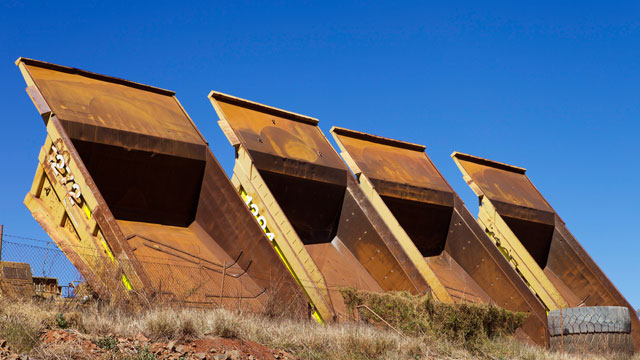SUMMARY
This is AI generated summarization, which may have errors. For context, always refer to the full article.

SYDNEY, Australia – As China slows and Australia begins its painful transition away from a decade-long mining boom, Treasurer Wayne Swan will have little to offer voters wanting an election-year spending spree Tuesday, May 14.
The government has spent months priming the public for a significant plunge in revenues — due to sluggish corporate tax earnings — when Swan unveils his final budget before Australia goes to the polls on September 14.
The stubbornly high Australian dollar has been fingered as the culprit, squeezing domestic industries at a time when fluctuating commodity prices due to cooling Chinese growth have seen export earnings slide.
Australia, the standout economy of resilience having dodged recession during the financial crisis, is showing signs of fatigue, prompting the central bank Tuesday to slash interest rates to a record low 2.75% to stimulate activity.
Long its major asset and economic driver, the China-driven mining industry is approaching an investment peak and a bumpy transformation lies ahead as triple-A credit-rated Australia seeks alternative sources of growth.
Swan’s economic stewardship through the global downturn earned him Euromoney’s Finance Minister of the Year in 2011, and he boasted that Australia would again beat the world — this time by returning to surplus in 2013.
What a difference 12 months can make.
Instead of using his budget address to burnish the center-left Labor party’s economic credentials as it seeks a third term in office, Swan is faced with the task of hiking taxes, slashing spending, and unveiling another four years of deficit.
“It’s already setting up as a misery election, but if revenue really is set to fall more than we expect that might really set it in stone,” said political commentator Greg Jericho.
“(Labor) is in the horror position of having to come from behind on a programme of fiscal responsibility.”
Rather than the splurging typical of an election year, Sydney University economist Colm Harmon said the budget was likely to be a “bland affair” aimed at “dampening the sense that somebody’s lost control of the steering wheel”.
“Anything by way of spending would be unbelieveable; anything too dramatic in terms of cutbacks will be too damaging,” said Harmon.
If opinion polls are a reliable indicator, Prime Minister Julia Gillard’s Labor party is on track to lose power in a landslide to the Tony Abbott-led conservatives come September.
It is a situation that confounds outsiders according to economist Stephen Koukoulas, formerly Gillard’s senior economic advisor.
“Globally people are saying ‘Gosh, what are you guys worrying about? You’re growing, you’ve got minuscule levels of government debt, you’re in the fastest-growing region in the world,” Koukoulas told AFP.
“‘You’ve got 5.5% unemployment, you’ve got government debt that’s 10% of GDP, your deficit’s 1% of GDP. What on Earth is bugging you guys?’.”
According to Harmon, who arrived in Australia from austerity-hit Ireland just nine months ago, the government made a rod for its back by repeatedly “fetishising” the political imperative of a budget surplus.
To justify reneging on that promise Harmon said Labor had been forced to resort to “the language of ‘let’s share the pain'” — the last thing voters want to hear in an election year and rhetoric that jars with reality.
“Australia is a million miles away from any of the catastrophic scenarios that other countries find themselves in,” said Harmon.
“While there are plenty of bumps in the road potentially — Chinese demand, housing market issues — the country has more than the ability to absorb that.
“The economic realities are very sound indeed. Unfortunately the political issue (of a deficit) is resonating with the public.”
Nick Economou, politics analyst from Monash University, said voters had largely stopped listening and had only “a sort of macabre interest to see how the condemned are going to behave as they go to their execution” on budget night.
“The voters have made up their minds and it’s all over,” said Economou.
“In politics people are never satisifed, it doesn’t matter what you do. And the worst thing you can say to them is ‘You’ve never had it so good’.” – Rappler.com
Pilbara, Western Australia image via Shutterstock
Add a comment
How does this make you feel?
There are no comments yet. Add your comment to start the conversation.